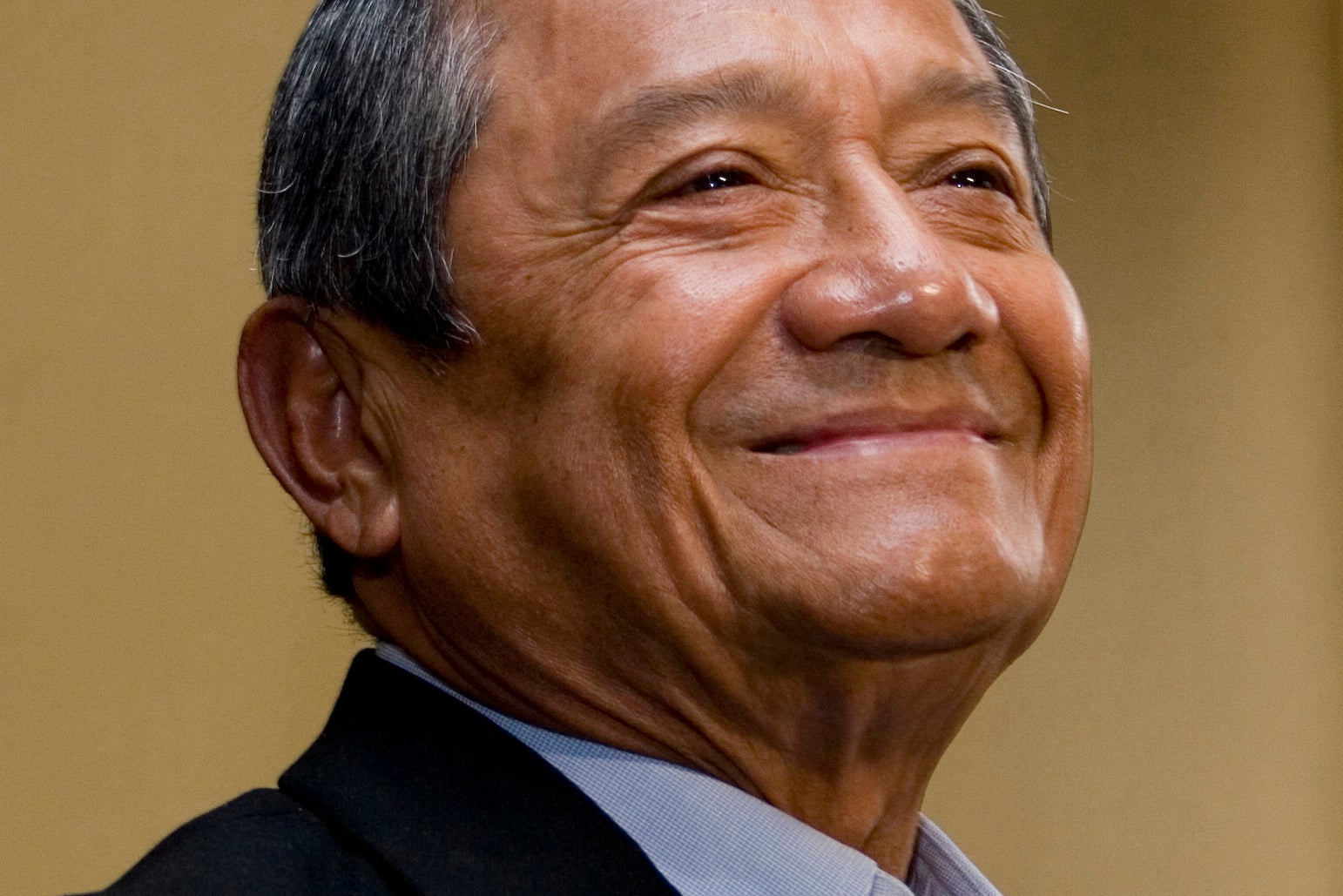Mexican singer, composer Armando Manzanero dies at 85
Mexican ballad singer and composer Armando Manzanero has died at the age of 85

Your support helps us to tell the story
From reproductive rights to climate change to Big Tech, The Independent is on the ground when the story is developing. Whether it's investigating the financials of Elon Musk's pro-Trump PAC or producing our latest documentary, 'The A Word', which shines a light on the American women fighting for reproductive rights, we know how important it is to parse out the facts from the messaging.
At such a critical moment in US history, we need reporters on the ground. Your donation allows us to keep sending journalists to speak to both sides of the story.
The Independent is trusted by Americans across the entire political spectrum. And unlike many other quality news outlets, we choose not to lock Americans out of our reporting and analysis with paywalls. We believe quality journalism should be available to everyone, paid for by those who can afford it.
Your support makes all the difference.Mexican ballad singer and composer Armando Manzanero died at the age of 85, Mexican President Andrés Manuel López Obrador said Monday.
Manzanero was hospitalized in recent weeks with COVID-19 and at one point was on a ventilator.
But his manager, Laura Blum, said he died at a Mexico City hospital of complications from a kidney problem.
Manzanero was a crooner best known for songs like “Somos Novios," which, with translated English lyrics, became the 1970s hit “It's Impossible” for Perry Como.
López Obrador praised the Yucatan native as “a great composer, and the country’s best.”
“Besides that, he was a man with sensitivity, on social questions as well,” the president noted.
The president played a video clip of Manzanero singing the song “Adoro,” and appeared so overcome by emotion at the news of his death that he cut short his daily news conference.
“I do not want to continue with this press conference. It ends here,” López Obrador said before playing the clip.
Manzanero was born in Merida, the capital of Yucatan state, and his ashes will be returned there, Blum said.
He was proud of his roots in the largely Maya indigenous state, noting “I am a Mexican of Mayan ancestry, I am a Mayan Indian.”
In a 2020 interview with The Associated Press, Manzanero expressed pride at how other artists continued to sing songs he wrote decades ago.
“The song I wrote 50 or 60 years ago is still alive,” Manzanero said. “Even flowers don't live that long.”
He had several ex-wives, seven children and 16 grandchildren, all of whom survived him.